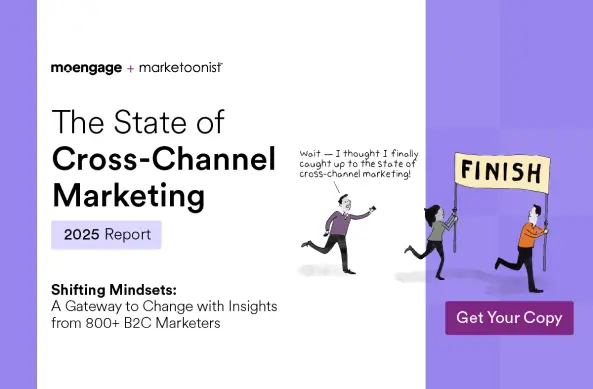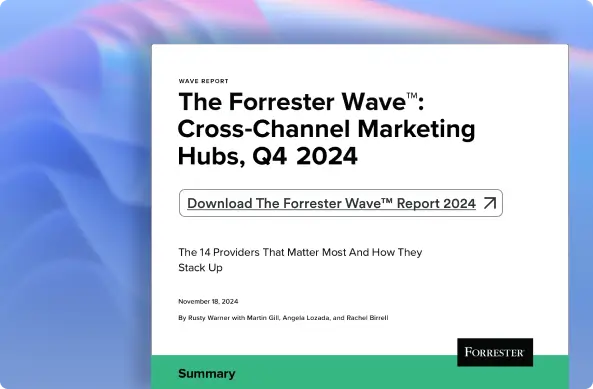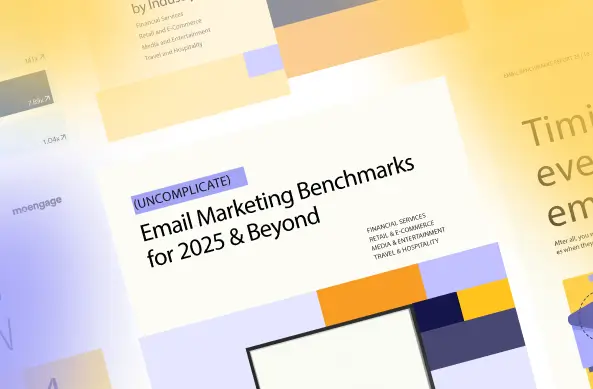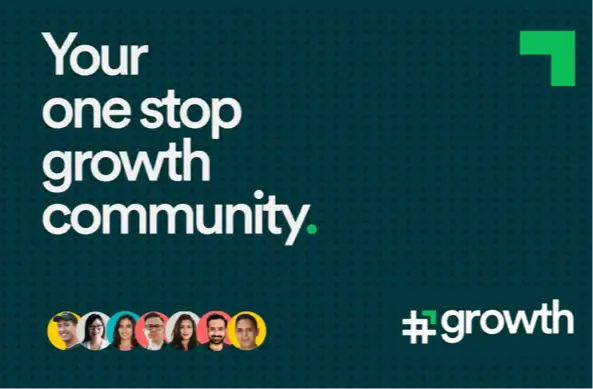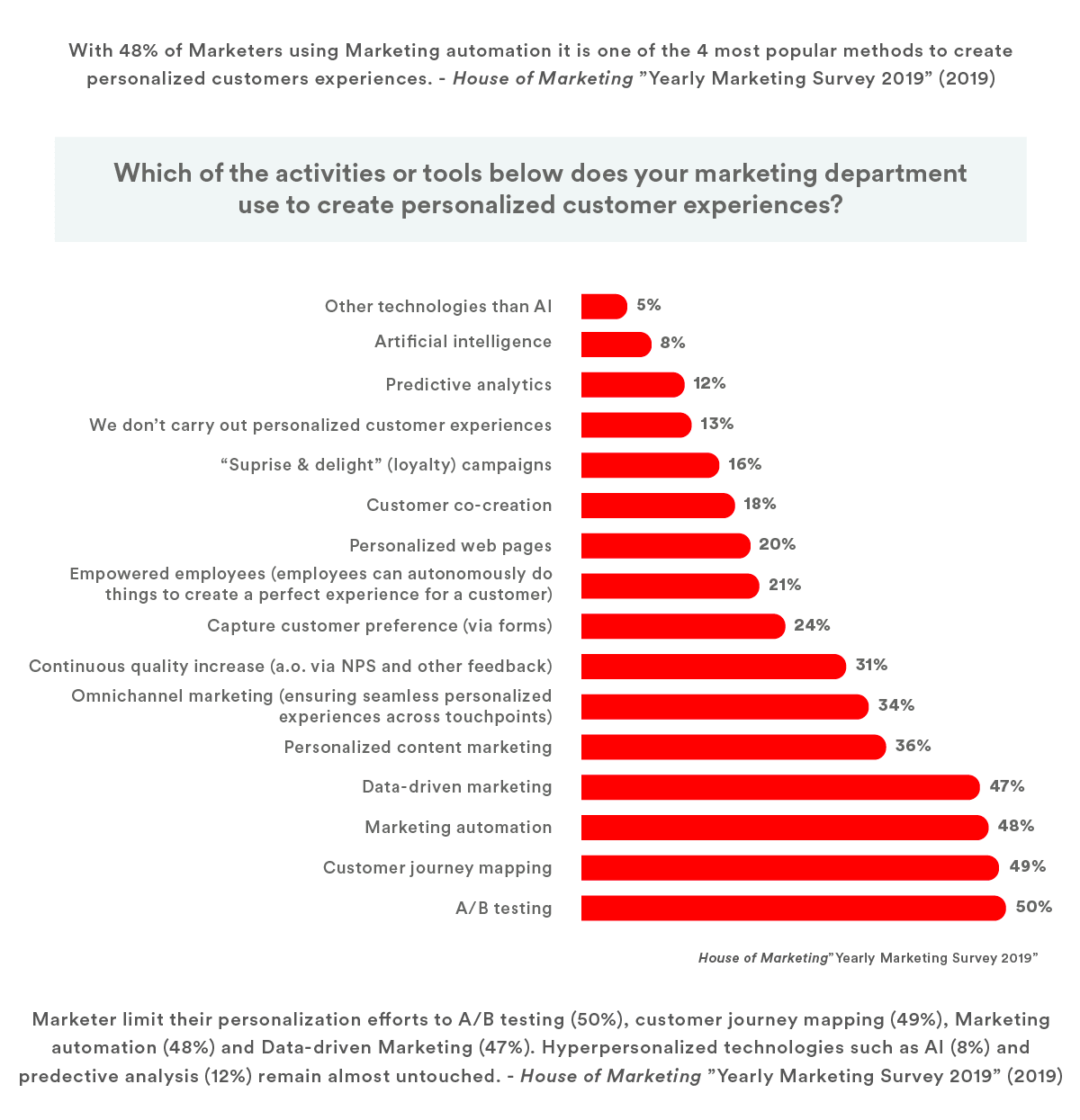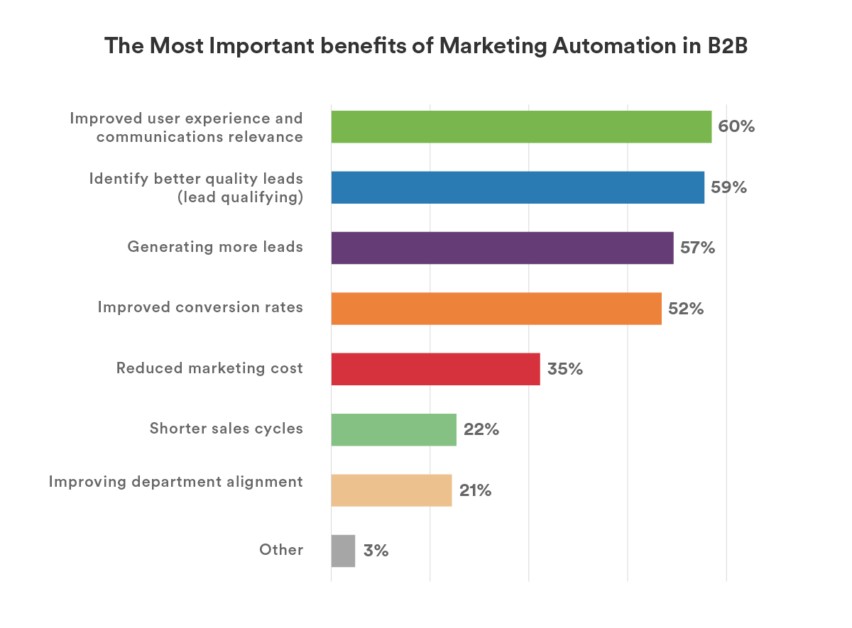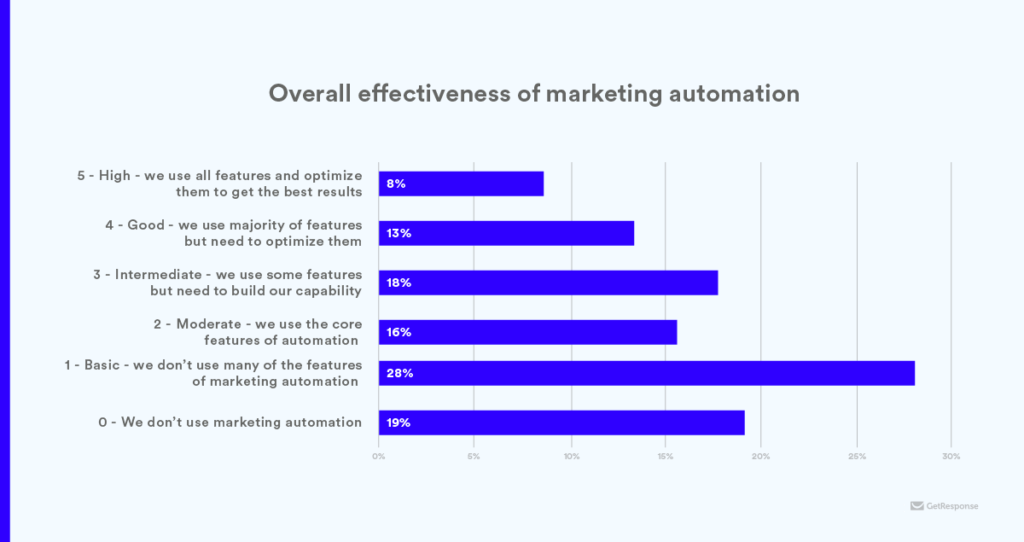2023 Marketing Automation Statistics You Can’t Miss
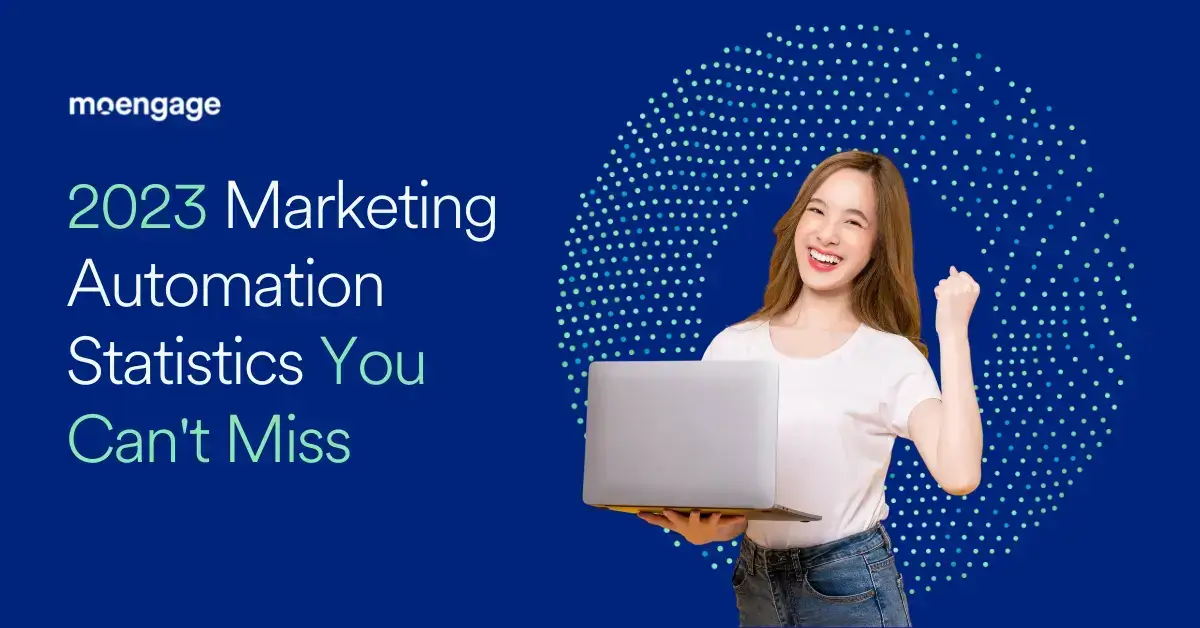
Businesses are increasingly looking for marketing automation solutions to eliminate manual tasks and put repetitive processes on auto-pilot to save time and costs. Not surprisingly, marketing automation is no longer just a trend but a must-have for marketers and brands eyeing growth.
If you still have not embraced automation for your marketing processes, there’s no better time than now. The best part about automation in marketing is that its benefits are not just limited to marketing. Besides an improved marketing ROI, a proper marketing automation strategy will help you:
- Increase sales productivity
- Reduce labor costs
- Eliminate human error
- Improve user experience and customer loyalty
Clearly, automating your marketing workflows has several advantages, not limited to increased personalization and more sales.
But you needn’t believe us just yet. The proof of the pudding is in the numbers, which is why we rounded up the latest marketing automation statistics from around the world to drive home the importance of automating your marketing processes.
For the sake of simplicity, the statistics are divided into three sections. These are adoption, use case and benefits, and limitations. So dive in to figure out whether the hype is worth it or not.
Marketing Automation Adoption Statistics
1. About three-quarters of all companies use one or more marketing automation tools. Social Media Today’s 2019 State of Marketing Automation Survey report reveals that 75% of all companies already use some kind of marketing automation tool. This indicates that most businesses and marketers already accept marketing automation, and the usage is likely to grow in the future as these tools become more advanced
2. 78% of B2B organizations use marketing automation to streamline complex marketing processes and data across multiple channels. Dun & Bradstreet found that 78% of B2B brands use marketing automation to some extent. Overall, 46% of B2B companies use marketing automation extensively, 32% make limited use of marketing automation technology and the remaining 22% that don’t currently use marketing automation plan to adopt it in the future.

Image Source: Dun & Bradstreet |
3. 48% of marketers use marketing automation to create personalized customer experiences. The House of Marketing “Yearly Marketing Survey 2019” found marketing automation to be one of the three most popular methods for personalization.
|
|
One of our clients, OnlineTyari, an early adopter of the MoEngage platform, experienced a 300% boost in conversions through hyper-personalized experiences delivered via marketing automation. The plug-and-play platform made it possible to personalize every step of the customer journey and create highly targeted automated marketing campaigns to drive measurable outcomes.
4. According to an Ascend2 2019 survey, 87% of marketing influencers plan to increase the time, resources, and expenses dedicated to integrating marketing automation into their overall strategy. Only 13% reported their total marketing automation integration budget might decrease to some extent.

|
Marketing Automation Use Case and Benefits
1. Marketers report improved campaign effectiveness, marketing and sales alignment, and improved quality lead generation as the top primary objectives for integrating a marketing automation strategy (Marketing Automation Integration Survey 2019).

|
Today, consumers are buried under information overload, and automation can help you cut through the clutter by sending highly personalized and targeted messages to improve campaign efficiency. Advanced marketing automation software also provides data-backed analytics and insights that can be used to align your sales and marketing functions for a unified brand experience.
2. Email automation campaigns are one of the top three tactics used by email marketers to improve performance (Not Another State of Marketing Report, HubSpot).
Online email automation platforms like MoEngage can automate your email marketing campaigns from end-to-end, delivering significantly improved marketing ROI. Read these insightful tips to get started with email marketing automation.
3. 23% of businesses use marketing automation for content delivery (Not Another State of Marketing Report, HubSpot).
Content is an essential pillar of any marketing strategy. But writing awesome content isn’t enough to achieve your marketing goals. Whether it is a helpful blog, an insightful whitepaper, or a promotional email, marketing automation helps you deliver your content to the right people at the right time, boosting its reach and efficiency.
Not surprisingly, it has been reported that a marketing automation system is one of the largest differences between the most and least successful content marketing efforts (B2B Content Marketing 2019 – Benchmarks, Budgets and Trends, North America, Content Marketing Institute).
4. Social media post scheduling (83%) is considered to be the most suitable process for marketing automation, followed by email marketing (75%), social media advertising (58%), messaging/chatbots (53%), and sales prospecting/alerts (39%).
The less accepted tasks for automation include social media engagement, social post creation, and PR outreach. All three jobs require human engagement or a personal element to make them feel genuine, which is why they’re ranked low for marketing automation (State of Marketing Automation Survey Report (2019), Social Media Today).
5. Marketing automation has several benefits for your business, not limited to cost and resource optimization. Automation impacts multiple aspects of your business and helps break down the information siloes to improve overall efficiency and department alignment. Improved user experience and communications relevance are the top benefits of marketing automation in B2B (Managing B2B Marketing Automation (2019), Communigator and SmartInsights).
|
|
6. Generating quality leads is one of the biggest hurdles faced by marketers. Marketing automation can help you overcome this hurdle as 80% of marketers have reported generating more leads using marketing automation software (Smallbizgenuis).
Marketing Automation Challenges
Marketing automation is not a fad but the future. Clearly, marketing automation has positive implications for all types of businesses. It is, in fact, a vital ingredient for business success and perhaps the only way to ensure direct communication with your prospects without your messages being lost in the milieu. Yet, despite all the benefits, the adoption of marketing automation technologies remains low. This section has rounded up some of the critical barriers to automation and how you can overcome them to scale your business in a sustainable fashion.
1. Many companies are new to marketing automation and unable to exploit all the features. In a survey, only about 8% of the respondents reported using all the features in their marketing automation software (Email Marketing and Marketing Automation Excellence 2018).
|
|
At MoEngage, we have deeply studied our user journeys to simplify marketing automation. The intuitive interface is exceptionally easy to use with multiple functionalities built within the same window. For instance, you can use MoEngage Flows to auto-segment customers into various categories based on their behaviors, map their journeys and delight them with personalized cross-channel communications. You can also build multiple Flows and our AI-based engines take on from there to identify the best cross-channel campaigns for various user segments. It is also possible to set up behavior-based conditions and triggers and track the performance of your campaigns from within the same dashboard.
2. While automation is “very important” to the overall performance of marketing, there are various challenges that limit the productivity of automation initiatives. One of the biggest challenges companies face when it comes to using marketing automation is delivering personalized content followed by marketing automation integration, and creating a successful strategy.
Furthermore, marketers find personalization (46%), artificial intelligence and predictive modeling (45%), and customer experience mapping to be the most difficult tactics for marketing automation optimization (43%) (Optimizing Marketing Automation Survey Summary Report, Ascend2).
Fortunately, advanced marketing automation platforms like MoEngage come integrated with AI-based capabilities to hyper-personalize your marketing campaigns without any additional effort on your part. The platform gives you an integrated dashboard with various options and data reports to make faster business decisions and achieve higher marketing ROI. Fix a demo to find out how you can automate your marketing with MoEngage’s intuitive automation platform.
3. Creating quality automation (16%) is the number 1 challenge faced by marketers, followed by marketing automation integration and content creation (Marketing Automation Challenges Report, Automizy).
The same report mentions that 15% of the respondents don’t automate due to the complexity of the marketing automation solutions available in the market. Another common reason for not adopting automation is bad software or not finding the right marketing automation tool. However, this is a surprising statistic, owing to the variety of marketing tools available to marketers and could perhaps be attributed to choice paralysis rather than a lack of choice. You can read this helpful blog on choosing the right automation software for your enterprise to invest your marketing budget wisely.
4. Integrating data from various sources and systems is one of the top barriers to the adoption of marketing automation, followed by the lack of resources to set up and manage marketing automation, lack of staff or skills for setting up rules, lead scoring, and sequences, and creating a marketing automation strategy (Managing B2B Marketing Automation (2019), Communigator and SmartInsights).
The Wrap
We have seen the benefits of marketing automation through various statistics. However, many brands have still not adopted marketing automation owing to a lack of resources or skills. To overcome this challenge, we have created an end-to-end automation platform at MoEngage that simplifies every single aspect of the automation process. Our platform helps you generate quality leads and close new customers by streamlining the entire process into a highly functional and transparent workflow.
Integrated analytics provide greater visibility into user behavior and track the response to your marketing campaigns. Our platform is also scalable and grows with your company. You can add extra functionalities on-demand to meet your clients’ evolving expectations. Get in touch at [email protected] or book a quick demo to explore our advanced marketing automation tools and strategies.
Here’s What You Can Read Next |

